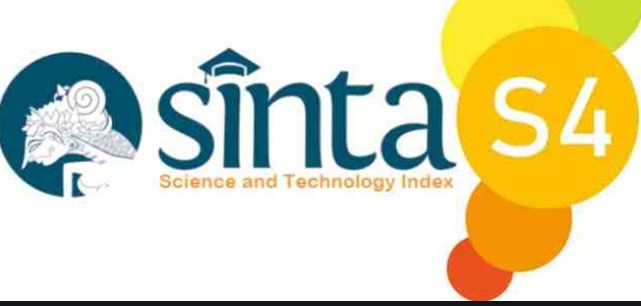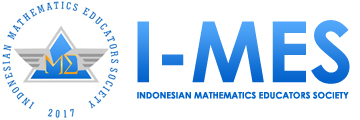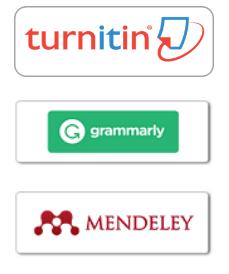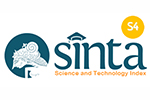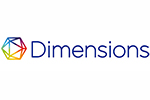EMOTIONAL INTELLIGENCE AND SELF-REGULATED LEARNING OF ELEVENTH-GRADE STUDENTS IN MATHEMATICS LEARNING
DOI:
https://doi.org/10.36706/jls.v6i2.33Keywords:
Emotional Intelligence, Mathematics Learning, Self-Regulated LearningAbstract
The aim of this study was to investigate students' emotional intelligence and self-regulated learning (SRL), and also to find out the relationship between students' emotional intelligence and SRL in mathematics learning. This study was descriptive quantitative research in which the population was grade XI students in a senior high school in Palembang. The technique of sampling used in this study was purposive sampling with the sample number was 33 students. Surveys using questionnaires and interviews were used for data collection. Analysis technique of data in the questionnaire using Spearman Rank test. According to the results, it was found that 18.18% of students had high emotional intelligence, 63.64% were moderate, and 18.18% were low. Furthermore, it was found that 15.15% of students had high SRL, 72.73% were moderate, and 12.12% were low. According to the analysis, there was a strong relationship between emotional intelligence and SRL of grade XI students in mathematics learning. Moreover, it was found that emotional intelligence contributed 58.52% to students' SRL and the remaining 41.48% was influenced by other factors that were not investigated in this study. The result of this study was expected to help teachers to determine learning methods or models that suit students' EI and SRL.
Downloads
References
Abror, M. H., Arifa, S. N., Hikmah, U., & Dewanti, S. S. (2023). Pengaruh Self-regulated Learning Terhadap Hasil Belajar Matematika. Science Tech: Jurnal Ilmu Pengetahuan Dan Teknologi, 9(2), 152–166.
Anggraini, T. P., Abbas, N., Oroh, F. A., & Pauweni, K. A. Y. (2022). Pengaruh kecerdasan emosional dan motivasi belajar terhadap hasil belajar matematika siswa. Jambura Journal of Mathematics Education, 3(1), 1–9.
Ansori, Y., & Herdiman, I. (2019). Pengaruh kemandirian belajar terhadap kemampuan pemecahan masalah matematis siswa SMP. Journal of Medives: Journal of Mathematics Education IKIP Veteran Semarang, 3(1), 11–19.
Apriyani, N. (2024). Self-Regulated Learning dalam Proses Belajar Matematika Sekolah. Trigonometri: Jurnal Matematika, 1(1), 1–5.
Bariyyah, K., & Latifah, L. (2019). Kecerdasan emosi siswa ditinjau dari jenis kelamin dan jenjang kelas. Jurnal Penelitian Guru Indonesia, 4(2), 68–75.
Barkah, J., & Hidayat, F. (2023). Pengaruh Kecerdasan Emosional dan Motivasi Kerja terhadap Kinerja Guru di Sekolah Dasar. Jurnal Pendidikan Tambusai, 7(2), 12473–12481.
Guo, W., Lau, K. L., & Wei, J. (2019). Teacher feedback and students’ self-regulated learning in mathematics: A comparison between a high-achieving and a low-achieving secondary schools. Studies in Educational Evaluation, 63, 48–58. https://doi.org/https://doi.org/10.1016/j.stueduc.2019.07.001
Hastuti, R. Y., & Baiti, E. N. (2019). Hubungan kecerdasan emosional dengan tingkat stress pada remaja. Jurnal Ilmiah Kesehatan, 8(2), 82–91.
Khodijah, N. (2014). Psikologi pendidikan.
Kristiyani, T. (2020). Self-regulated learning: Konsep, implikasi dan tantangannya bagi siswa di Indonesia. Sanata Dharma University Press.
Manalu, D., Sipayung, R., & Sembiring, R. K. B. (2023). Pengaruh Kinerja Guru Terhadap Hasil Belajar Peserta Didik di Kelas V Muatan Pelajaran IPS SD Santo Thomas 2 Medan. Pendas: Jurnal Ilmiah Pendidikan Dasar, 8(1), 3683–3692.
Núñez, M. E., García, P. M., & Abbas, A. (2023). The mediating role of self-regulation between emotional intelligence and student performance in online global classroom-based collaborative international online learning (COIL): Empirical evidence from four partner universities of Latin America. Research in Globalization, 7, 1–7. https://doi.org/10.1016/j.resglo.2023.100178
Parantika, I. W. A. (2022). Pengembangan Instrumen Self Regulated Learning dan Kecerdasan Emosional Pada Pembelajaran Matematika Kelas V di Sekolah Dasar -Lampiran [ Universitas Pendidikan Ganesha.]. http://repo.undiksha.ac.id/id/eprint/13091
Pasaribu, I. C. (2020). Pengaruh Kecerdasan Emosional Terhadap Kemandirian Belajar di SMP Negeri 6 Binjai Tahun Pelajaran 2019/2020.
Prastania, M. S., & Sanoto, H. (2021). Korelasi antara supervisi akademik dengan kompetensi profesional guru di sekolah dasar. Jurnal Basicedu, 5(2), 861–868.
Purnomo, Y. (2017). Pengaruh sikap siswa pada pelajaran matematika dan kemandirian belajar siswa terhadap prestasi belajar matematika. JKPM (Jurnal Kajian Pendidikan Matematika), 2(1), 93–105.
Rahmawati, K. P., Djaja, S., & Suyadi, B. (2018). Pengaruh Minat Belajar Dan Kecerdasan Emosional Terhadap Prestasi Belajar Siswa Kelas Xi Ips Sma Negeri 1 Prajekan Kabupaten Bondowoso Tahun Ajaran 2016/2017. JURNAL PENDIDIKAN EKONOMI: Jurnal Ilmiah Ilmu Pendidikan, Ilmu Ekonomi Dan Ilmu Sosial, 11(2), 61–68.
Rizki, P. N. M., Handoko, I., Purnama, P., & Rustam, D. (2022). Promoting self-regulated learning for students in underdeveloped areas: The case of Indonesia Nationwide Online-Learning Program. Sustainability, 14(7), 4075.
Saragih, U. K., & Harahap, A. C. P. (2024). Pengaruh Kecemasan Akademik dan Situasi Akademik Terhadap Self Regulated Learning Siswa SMP. G-Couns: Jurnal Bimbingan Dan Konseling, 8(2), 1033–1044.
Sukma, Y. (2021). Pengaruh Self-Efficacy dan Metacognitive Self-Regulation Terhadap Kemampuan Berpikir Kritis Siswa Kelas VII Sekolah Menengah Pertama.
Sukriadi, S., Basir, A., & Rusdiana, R. (2016). Pengaruh kecerdasan emosional terhadap hasil belajar matematika siswa pada materi sudut dan garis di kelas VII MTs Normal Islam Samarinda. JPMI (Jurnal Pendidikan Matematika Indonesia), 1(2), 65–73.
Winarso, W., & Supriady, D. (2017). Menilai prestasi belajar melalui penguatan self regulated learning dan kecerdasan emosional siswa pada pembelajaran matematika.
Woi, M. F., & Prihatni, Y. (2019). Hubungan antara kemandirian belajar dengan hasil belajar matematika. Teacher in Educational Research, 1(1), 1–8.
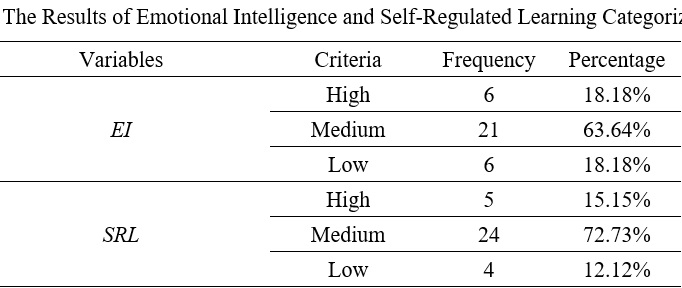
Downloads
Published
How to Cite
Issue
Section
Citation Check
License
Copyright (c) 2024 Yovika Sukma, Putri Aulia Ramasanti, Clara Dita, Novita Sari, Ratu Ilma Indra Putri

This work is licensed under a Creative Commons Attribution 4.0 International License.


